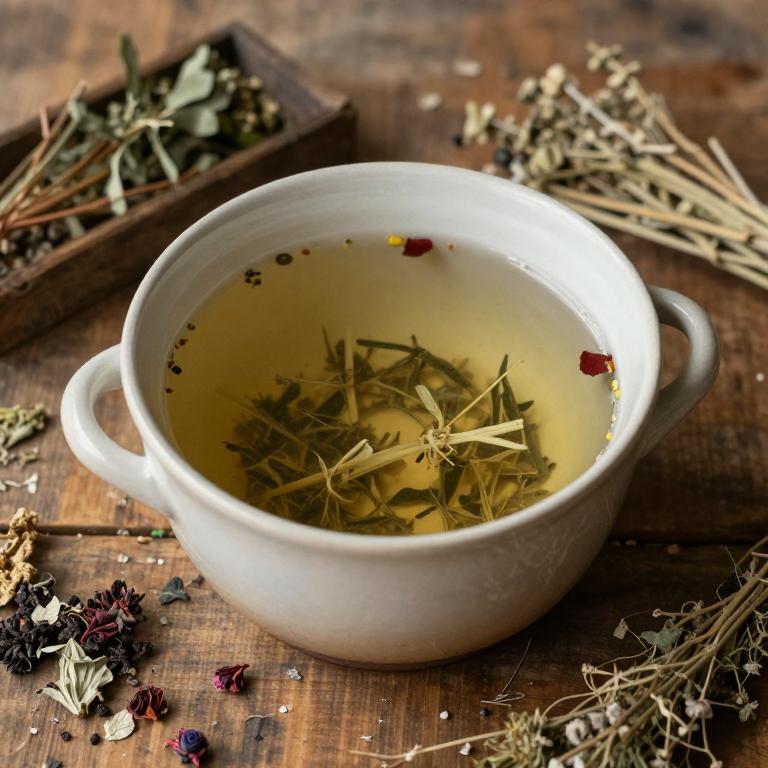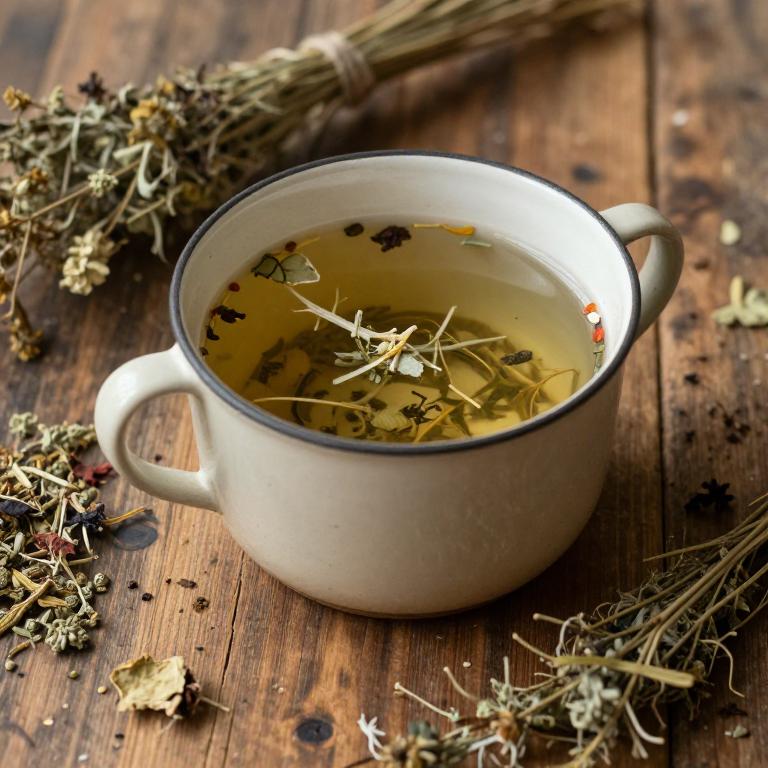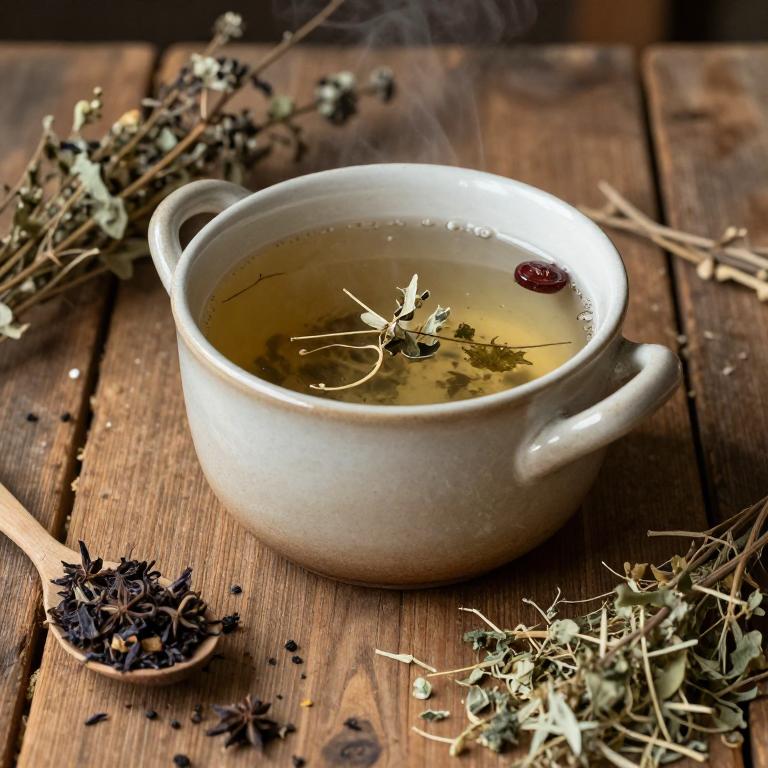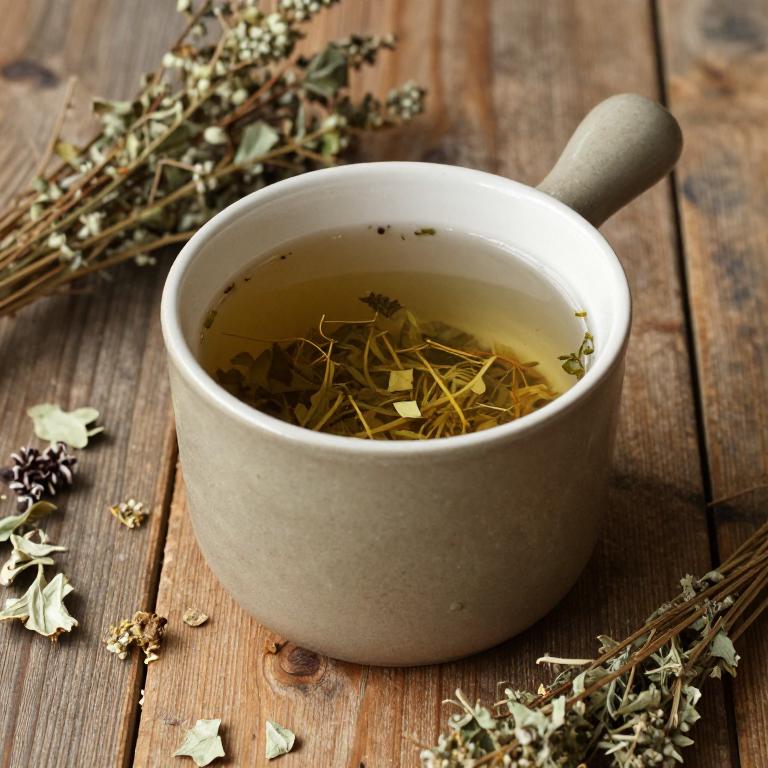10 Best Herbal Decoctions For Endometriosis Pain

Herbal decoctions have been traditionally used to alleviate endometriosis-related pain by reducing inflammation and hormonal imbalances.
Commonly used herbs include turmeric, ginger, and willow bark, which possess anti-inflammatory and analgesic properties. These decoctions are often prepared by simmering the herbs in water to extract their active compounds, making them easily consumable. While some studies suggest potential benefits, it is important to consult with a healthcare provider before using herbal treatments, as they may interact with other medications.
Overall, herbal decoctions can be a complementary approach to managing endometriosis pain, but they should not replace conventional medical treatments.
Table of Contents
- 1. Turmeric (Curcuma longa)
- 2. Chaste tree (Vitex agnus-castus)
- 3. Stinging nettle (Urtica dioica)
- 4. Ginger (Zingiber officinale)
- 5. Black cohosh (Cimicifuga racemosa)
- 6. Thistle (Silybum marianum)
- 7. White water lily (Nymphaea alba)
- 8. Licorice (Glycyrrhiza glabra)
- 9. Chinese peony (Paeonia lactiflora)
- 10. Tree peony (Paeonia suffruticosa)
1. Turmeric (Curcuma longa)

Curcuma longa, commonly known as turmeric, has been traditionally used for its anti-inflammatory and analgesic properties, making it a potential herbal remedy for managing endometriosis-related pain.
The active compound in turmeric, curcumin, has been shown to inhibit inflammatory pathways such as COX-2 and NF-κB, which are often overactive in endometriosis. Herbal decoctions made from Curcuma longa can be prepared by boiling the root in water, allowing for the extraction of curcumin and other bioactive compounds. Some studies suggest that curcumin may help reduce the size of endometrial lesions and alleviate pelvic pain, though more clinical research is needed to confirm its efficacy.
When used as part of a holistic treatment plan, turmeric decoctions may offer a natural alternative or complement to conventional pain management strategies for endometriosis.
2. Chaste tree (Vitex agnus-castus)

Vitex agnus-castus, commonly known as chasteberry, has been traditionally used in herbal medicine to support hormonal balance and alleviate symptoms associated with endometriosis.
Its active compounds, such as flavonoids and iridoids, are believed to influence the hypothalamic-pituitary-ovarian axis, potentially reducing estrogen levels and mitigating the inflammatory response linked to endometrial growth. Some studies suggest that vitex may help reduce pelvic pain and menstrual cramping, common symptoms in women with endometriosis. While research is limited, many practitioners recommend vitex as a complementary therapy alongside conventional treatments.
However, it is important to consult a healthcare provider before use, as individual responses and potential interactions may vary.
3. Stinging nettle (Urtica dioica)

Urtica dioica, commonly known as stinging nettle, has been traditionally used in herbal medicine for its anti-inflammatory and pain-relieving properties.
Herbal decoctions made from the leaves and stems of Urtica dioica are often prepared by simmering the dried plant material in water for several hours, resulting in a potent infusion. Some studies suggest that the high concentration of polyphenols and other bioactive compounds in nettle may help reduce inflammation and alleviate the chronic pain associated with endometriosis. However, while anecdotal evidence supports its use, more rigorous clinical trials are needed to confirm its efficacy and safety for this condition.
As with any herbal remedy, it is advisable to consult a healthcare provider before using Urtica dioica decoctions, especially for individuals with endometriosis.
4. Ginger (Zingiber officinale)

Zingiber officinale, commonly known as ginger, has been traditionally used for its anti-inflammatory and analgesic properties, making it a potential natural remedy for managing endometriosis-related pain.
Herbal decoctions of ginger involve simmering fresh or dried ginger root in water to extract its active compounds, such as gingerols and shogaols, which are believed to reduce inflammation and inhibit pain signals. Studies suggest that these decoctions may help alleviate menstrual cramps and pelvic pain associated with endometriosis by modulating prostaglandin levels and reducing oxidative stress. While more clinical research is needed, many women report relief from symptoms when incorporating ginger decoctions into their wellness routine.
As with any herbal treatment, it is advisable to consult a healthcare provider before use, especially for those with existing medical conditions or taking other medications.
5. Black cohosh (Cimicifuga racemosa)

Cimicifuga racemosa, commonly known as black cohosh, has been traditionally used in herbal medicine to alleviate symptoms associated with hormonal imbalances, including those seen in endometriosis.
Herbal decoctions of Cimicifuga racemosa are often prepared by simmering the root in water for several hours to extract its active compounds, such as triterpene glycosides and flavonoids. These compounds are believed to interact with the body's estrogen receptors, potentially reducing the inflammatory response and pain associated with endometriosis. Some studies suggest that Cimicifuga racemosa may help manage pelvic pain and menstrual cramps, making it a popular complementary therapy for women with endometriosis.
However, it is important to consult with a qualified healthcare provider before using this herb, as it may interact with other medications and is not a substitute for conventional medical treatment.
6. Thistle (Silybum marianum)

Silybum marianum, commonly known as milk thistle, has been explored as a natural remedy for managing endometriosis-related pain due to its anti-inflammatory and antioxidant properties.
Herbal decoctions made from the seeds of Silybum marianum are believed to support liver function and reduce oxidative stress, which may contribute to pain and inflammation in endometriosis. Some studies suggest that the active compound silymarin in milk thistle may inhibit the growth of endometrial lesions and reduce pelvic pain. However, while preliminary research is promising, more clinical trials are needed to confirm its efficacy and safety for endometriosis treatment.
It is important to consult a healthcare provider before using milk thistle decoctions, as they may interact with other medications or have side effects.
7. White water lily (Nymphaea alba)

Nymphaea alba, commonly known as white water lily, has been traditionally used in herbal medicine for its potential anti-inflammatory and analgesic properties.
Recent studies suggest that Nymphaea alba herbal decoctions may help alleviate endometriosis-related pain by modulating inflammatory pathways and reducing oxidative stress in the pelvic region. The decoction is typically prepared by boiling the dried roots and leaves, and it is often combined with other herbs to enhance its therapeutic effects. While more clinical research is needed, preliminary findings indicate that it could be a complementary therapy for managing endometriosis symptoms.
Patients considering this treatment should consult with a qualified herbalist or healthcare provider to ensure safety and proper dosing.
8. Licorice (Glycyrrhiza glabra)

Glycyrrhiza glabra, commonly known as licorice root, has been traditionally used in herbal medicine for its anti-inflammatory and pain-relieving properties.
Herbal decoctions made from Glycyrrhiza glabra may help alleviate endometriosis-related pain by reducing inflammation and modulating hormonal imbalances associated with the condition. The active compounds in licorice root, such as glycyrrhizin and isoflavones, are believed to possess antioxidant and anti-inflammatory effects that may support the body's natural healing processes. However, it is important to note that while some studies suggest potential benefits, more clinical research is needed to confirm its efficacy and safety for endometriosis treatment.
As with any herbal remedy, it should be used under the guidance of a qualified healthcare provider to ensure proper dosage and avoid interactions with other medications.
9. Chinese peony (Paeonia lactiflora)

Paeonia lactiflora, commonly known as peony, has been traditionally used in herbal medicine for its potential anti-inflammatory and analgesic properties.
Herbal decoctions made from the roots of Paeonia lactiflora are believed to help alleviate endometriosis-related pain by reducing inflammation and modulating hormonal imbalances. Clinical studies suggest that the active compounds in peony, such as paeoniflorin, may inhibit the growth of endometrial tissue and reduce oxidative stress. These decoctions are often prepared by simmering the dried roots in water for several hours, and the resulting infusion is consumed as a tea or taken in capsule form.
While more research is needed, some women with endometriosis have reported relief from symptoms when using Paeonia lactiflora as part of an integrative treatment plan.
10. Tree peony (Paeonia suffruticosa)

Paeonia suffruticosa, commonly known as tree peony, has been traditionally used in Chinese herbal medicine for its anti-inflammatory and analgesic properties.
Herbal decoctions made from Paeonia suffruticosa are believed to help alleviate the chronic pain associated with endometriosis by reducing inflammation and improving blood circulation. These decoctions often contain other herbs such as Angelica sinensis and Cyathula officinalis to enhance their therapeutic effects. Clinical studies suggest that Paeonia suffruticosa may modulate hormonal imbalances and inhibit the growth of endometrial lesions.
However, it is important to consult a qualified practitioner before using these herbal treatments as part of a comprehensive management plan for endometriosis.